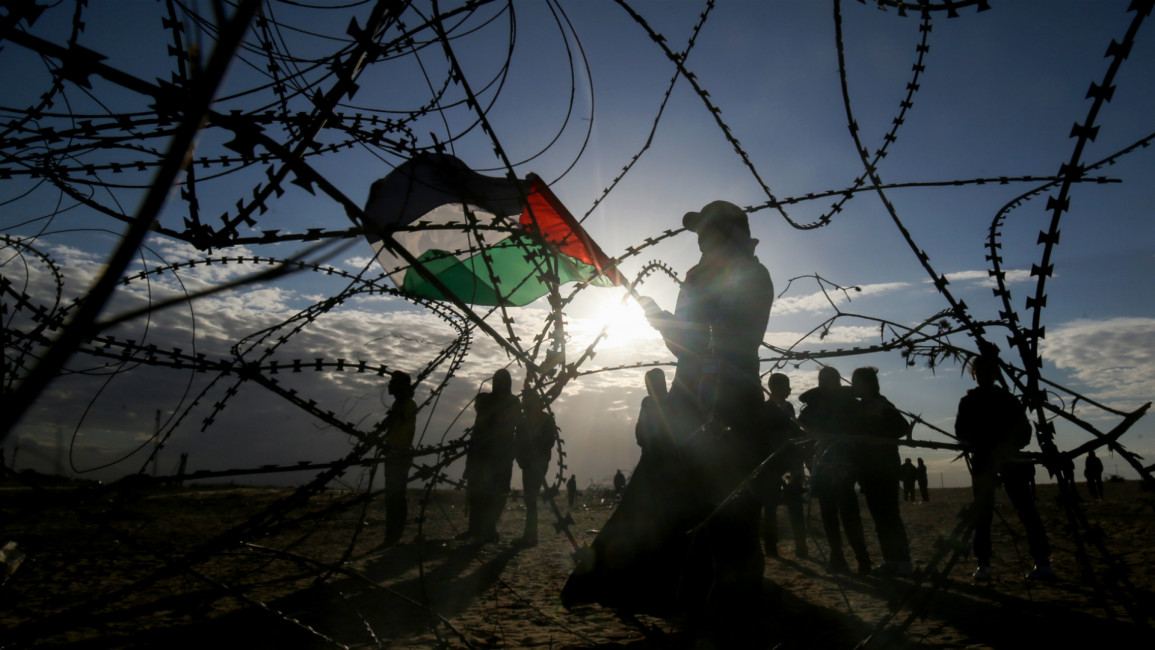Hamas confirms first two coronavirus cases in blockaded Gaza Strip
The United Nations has warned that a COVID-19 outbreak in Gaza could be disastrous, given the high poverty rates and weak health system in the coastal strip under Israeli blockade since 2007.
But Gaza's health ministry said the two people who tested positive had been held in quarantine since their return from Pakistan on Thursday and did not interact with the wider population.
"These two cases were recorded among those who returned to Gaza ... (and) did not mix with the residents of the Gaza Strip," deputy health minister Yousef Abu Al-Reesh told reporters.
The sick, identified as two men, were in stable condition, the health ministry said.
Israel has enforced a blockade on Gaza since 2007, when Islamist group Hamas seized control of the territory.
Read also: Israeli forces ignore coronavirus distancing measures, continue campaign of arrests against Palestinians
Israel argues the measures are necessary to isolate Hamas, considered a terrorist organisation by most Western countries. Israel and Hamas have fought three wars since 2008.
Movement in and out of the territory - severely restricted by Israel and Egypt before the pandemic - has tightened in response to the coronavirus.
Twitter Post
|
Authorities in Gaza have said that more than 2,700 Palestinians are in home-isolation, mostly people who had returned from Egypt.
'Disaster of gigantic proportions'
The head of the World Health Organisation's Palestinian office, Gerald Rockenschaub, told AFP this week that Israeli restrictions and political tensions have caused Gaza's health facilities to deteriorate over the past decade.
Gaza has only 60 intensive care (ICU) beds for its two million people and not all are operational due to staff shortages, he said.
In response to the pandemic, Israel has announced an increased supply of medical equipment to Gaza, including hundreds of COVID-19 test kits transferred this week.
Hamas authorities are also working to build up to 1,000 new isolation rooms near the Rafah crossing with Egypt.
The Gaza director of the United Nations agency for Palestinian refugees UNRWA, Matthias Schmale, told AFP this week that it would be "an illusion to think you can manage (an epidemic) in a closed-off space like this."
"Everything I am hearing is if the outbreak reaches the magnitude where you need more than 60 ICU beds to treat, it will become increasingly difficult and could well turn into a disaster of gigantic proportions," he said.
Palestinians suffering from cancer and other serious diseases are currently allowed to leave Gaza through Israel for treatment inside the Jewish state or in the occupied West Bank.
It is not yet clear if Israel, which has imposed tight restrictions on its own population in response to the pandemic, will allow seriously ill coronavirus patients to be transferred from the Strip.
Global pandemic
The COVID-19 virus, which was first detected in China's Wuhan in December, has killed more than 13,069 people worldwide, while over 308,595 infections have been confirmed.
The majority of those that infected with corona experience only mild or moderate symptoms, including fever and a dry cough.
However, concerns have been raised for the elderly and those with existing health issues, who have reportedly suffered with more severe complications, including pneumonia and even death.
The World Health Organisation this month estimated the novel coronavirus kills 3.4 percent of all those infected.
Read also: Arab leaders were already incompetent, then came coronavirus
But for people aged over 80 the fatality rate was 21.9 percent, according to a report the WHO carried out with the Chinese authorities.
As of yet, there are no known treatments for the virus, though more than 95,829 have already recovered from the infection.
The World Health Organisation has confirmed those who experience a milder version of the virus recover in about two weeks, while those with more severe illness may take three to six weeks to recover.
As the pandemic continues to spread across the world, dozens of research groups around the world are racing to create a vaccine while governments continue to impose strict restrictions or "lockdowns" to help stem the spread of the virus.
Follow us on Facebook, Twitter and Instagram to stay connected



